Some good tips for aspiring and established writers. It's been posted around the Internet here and there, so I don't feel guilty putting it up again.
Elmore Leonard’s Ten Rules of Writing
Easy on the Adverbs, Exclamation Points and Especially Hooptedoodle
from the New York Times, Writers on Writing Series.
Being a good author is a disappearing act.
By ELMORE LEONARD
These are rules I’ve picked up along the way to help me remain invisible when I’m writing a book, to help me show rather than tell what’s taking place in the story. If you have a facility for language and imagery and the sound of your voice pleases you, invisibility is not what you are after, and you can skip the rules. Still, you might look them over.
1. Never open a book with weather. If it’s only to create atmosphere, and not a character’s reaction to the weather, you don’t want to go on too long. The reader is apt to leaf ahead looking for people. There are exceptions. If you happen to be Barry Lopez, who has more ways to describe ice and snow than an Eskimo, you can do all the weather reporting you want.
2. Avoid prologues.
They can be annoying, especially a prologue following an introduction that comes after a foreword. But these are ordinarily found in nonfiction. A prologue in a novel is backstory, and you can drop it in anywhere you want.
There is a prologue in John Steinbeck’s “Sweet Thursday,” but it’s O.K. because a character in the book makes the point of what my rules are all about. He says: “I like a lot of talk in a book and I don’t like to have nobody tell me what the guy that’s talking looks like. I want to figure out what he looks like from the way he talks. . . . figure out what the guy’s thinking from what he says. I like some description but not too much of that. . . . Sometimes I want a book to break loose with a bunch of hooptedoodle. . . . Spin up some pretty words maybe or sing a little song with language. That’s nice. But I wish it was set aside so I don’t have to read it. I don’t want hooptedoodle to get mixed up with the story.”
3. Never use a verb other than “said” to carry dialogue.
The line of dialogue belongs to the character; the verb is the writer sticking his nose in. But said is far less intrusive than grumbled, gasped, cautioned, lied. I once noticed Mary McCarthy ending a line of dialogue with “she asseverated,” and had to stop reading to get the dictionary.
4. Never use an adverb to modify the verb “said” . . .
. . . he admonished gravely. To use an adverb this way (or almost any way) is a mortal sin. The writer is now exposing himself in earnest, using a word that distracts and can interrupt the rhythm of the exchange. I have a character in one of my books tell how she used to write historical romances “full of rape and adverbs.”
5. Keep your exclamation points under control.
You are allowed no more than two or three per 100,000 words of prose. If you have the knack of playing with exclaimers the way Tom Wolfe does, you can throw them in by the handful.
6. Never use the words “suddenly” or “all hell broke loose.”
This rule doesn’t require an explanation. I have noticed that writers who use “suddenly” tend to exercise less control in the application of exclamation points.
7. Use regional dialect, patois, sparingly.
Once you start spelling words in dialogue phonetically and loading the page with apostrophes, you won’t be able to stop. Notice the way Annie Proulx captures the flavor of Wyoming voices in her book of short stories “Close Range.”
8. Avoid detailed descriptions of characters.
Which Steinbeck covered. In Ernest Hemingway’s “Hills Like White Elephants” what do the “American and the girl with him” look like? “She had taken off her hat and put it on the table.” That’s the only reference to a physical description in the story, and yet we see the couple and know them by their tones of voice, with not one adverb in sight.
9. Don’t go into great detail describing places and things.
Unless you’re Margaret Atwood and can paint scenes with language or write landscapes in the style of Jim Harrison. But even if you’re good at it, you don’t want descriptions that bring the action, the flow of the story, to a standstill.
And finally:
10. Try to leave out the part that readers tend to skip.
A rule that came to mind in 1983. Think of what you skip reading a novel: thick paragraphs of prose you can see have too many words in them. What the writer is doing, he’s writing, perpetrating hooptedoodle, perhaps taking another shot at the weather, or has gone into the character’s head, and the reader either knows what the guy’s thinking or doesn’t care. I’ll bet you don’t skip dialogue.
My most important rule is one that sums up the 10.
If it sounds like writing, I rewrite it.
Or, if proper usage gets in the way, it may have to go. I can’t allow what we learned in English composition to disrupt the sound and rhythm of the narrative. It’s my attempt to remain invisible, not distract the reader from the story with obvious writing. (Joseph Conrad said something about words getting in the way of what you want to say.)
If I write in scenes and always from the point of view of a particular character—the one whose view best brings the scene to life—I’m able to concentrate on the voices of the characters telling you who they are and how they feel about what they see and what’s going on, and I’m nowhere in sight.
What Steinbeck did in “Sweet Thursday” was title his chapters as an indication, though obscure, of what they cover. “Whom the Gods Love They Drive Nuts” is one, “Lousy Wednesday” another. The third chapter is titled “Hooptedoodle 1” and the 38th chapter “Hooptedoodle 2” as warnings to the reader, as if Steinbeck is saying: “Here’s where you’ll see me taking flights of fancy with my writing, and it won’t get in the way of the story. Skip them if you want.”
“Sweet Thursday” came out in 1954, when I was just beginning to be published, and I’ve never forgotten that prologue.
Did I read the hooptedoodle chapters? Every word.



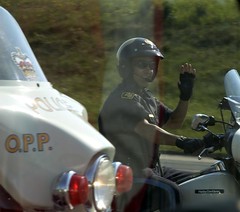 So the a cop has stopped you, nailed you for a $398 speeding ticket and to top it off called you a cheese head and you're not even from Wisconsin. Cheesehead, indeed. You want to complain, but you're wondering about the stories from south Florida when citizens were
So the a cop has stopped you, nailed you for a $398 speeding ticket and to top it off called you a cheese head and you're not even from Wisconsin. Cheesehead, indeed. You want to complain, but you're wondering about the stories from south Florida when citizens were 

 Anthony Burgess named
Anthony Burgess named 
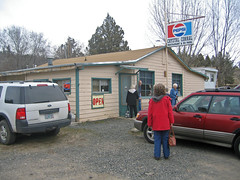
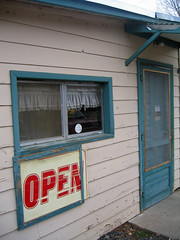 "Lots of cars," Emily says. "A good sign."
"Lots of cars," Emily says. "A good sign."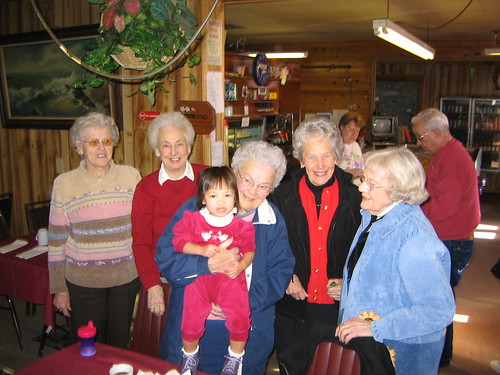
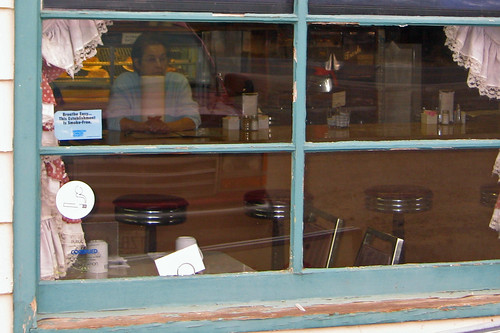
 1. Thou shalt not disrespect the judge. Do not tell her she looks like Curly Joe, even if she does.
1. Thou shalt not disrespect the judge. Do not tell her she looks like Curly Joe, even if she does. You'll be fast friends by the time you get out of the clink. If the ticket really cheeses you off, get a lawyer. Get a good one. Not one that your deadbeat brother-in-law Phil recommended. Don't use your family attorney. The best defense attorney is the slimey, pitbulls that the cops hate. Ask around. If you know a cop, ask them. Pay a visit to traffic court, watch some trials, see the attorneys in action. Pick one that you will be comfortable with. Face it, good attorneys aren't cheap, but then bad ones may not be either.
You'll be fast friends by the time you get out of the clink. If the ticket really cheeses you off, get a lawyer. Get a good one. Not one that your deadbeat brother-in-law Phil recommended. Don't use your family attorney. The best defense attorney is the slimey, pitbulls that the cops hate. Ask around. If you know a cop, ask them. Pay a visit to traffic court, watch some trials, see the attorneys in action. Pick one that you will be comfortable with. Face it, good attorneys aren't cheap, but then bad ones may not be either.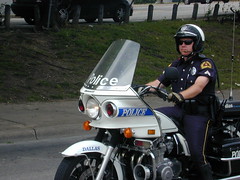 Officer: Okay, pal, where's the fire.
Officer: Okay, pal, where's the fire.







